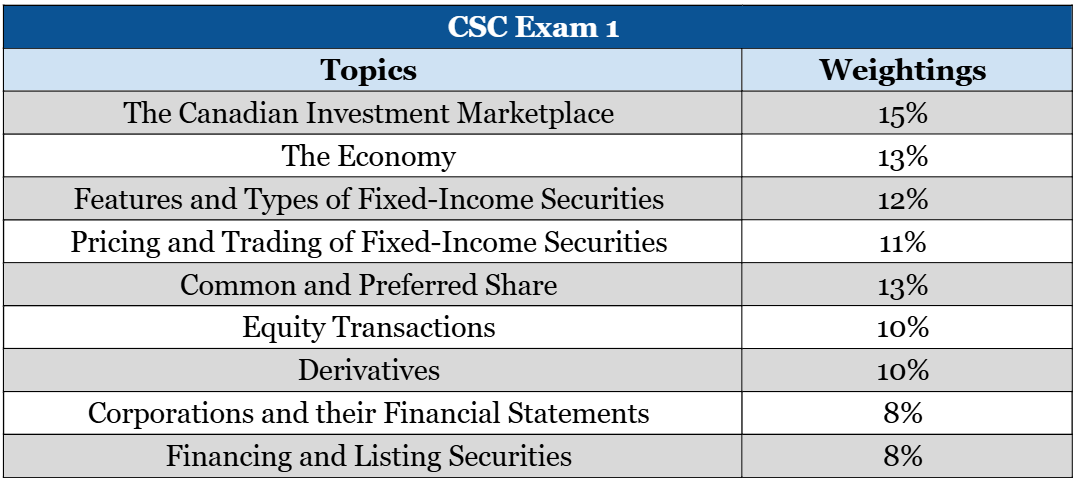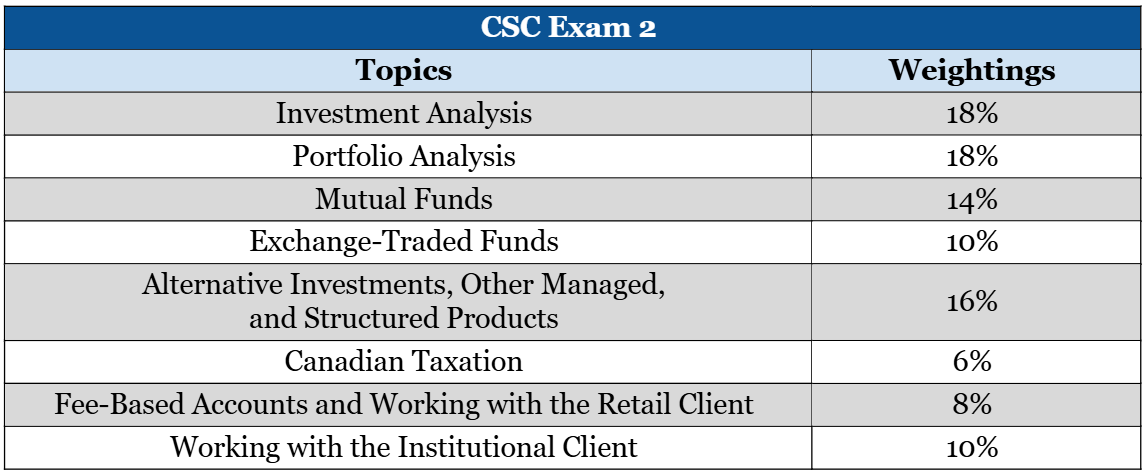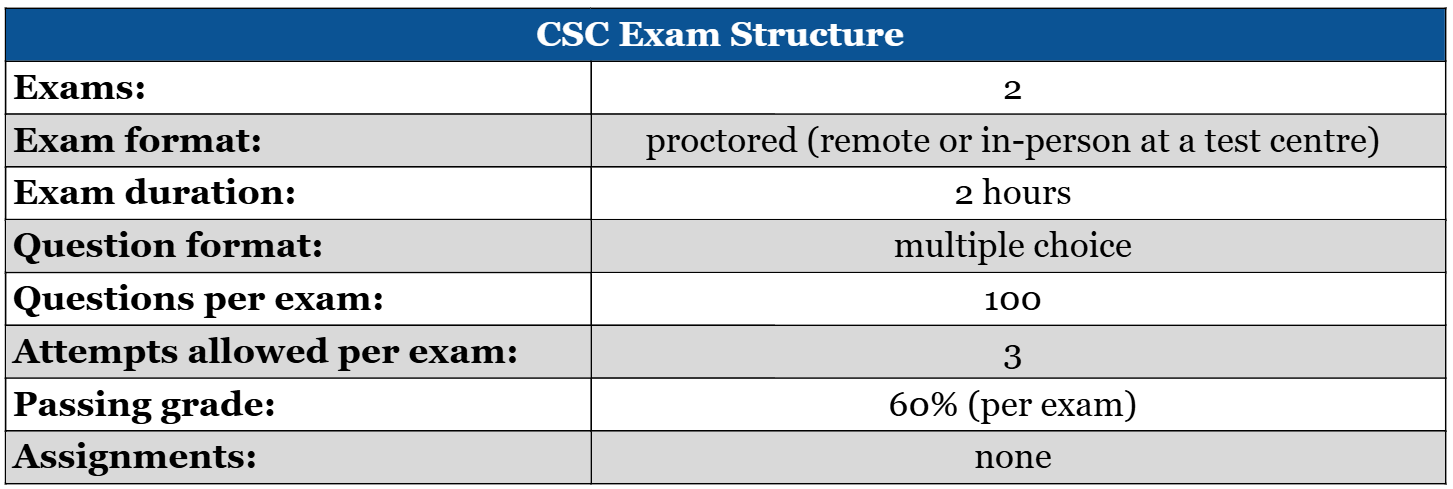Planning to take the Canadian securities course? Check out these expert prep tips to help you get ready, study smarter, and pass the exam

- Introduction to the Canadian Securities Course
- What do I need to take the Canadian Securities Course?
- An overview of the Canadian Securities Course
- What is the pass rate for the Canadian Securities Course?
- Career paths to consider after finishing the Canadian Securities Course
- Is the Canadian Securities Course a licence?
- Taking the Canadian Securities Course: Is it worth it?
In Canada, a career in finance can lead to new responsibilities yet more control over how you serve your clients plus tons of opportunities. Many financial advisors begin with foundational roles and eventually move into specialized areas. Some might choose to work with investors who have sizable assets while others might decide to open their own business.
The Canadian Securities Course (CSC) is a certification course that can push wealth professionals to take their career further and reach for greater heights. It can provide you with knowledge in areas that are essential to daily practice. In this article, Wealth Professional Canada discusses how the CSC works and how it can help you reach your career objectives and more.
Introduction to the Canadian Securities Course
Echoing the words used by the Canadian Securities Institute (CSI), the main institution that offers the CSC, it is a “widely recognized foundational financial services credential.” This educational program is created for those who wish to expand their knowledge and expertise in the Canadian financial industry.
You can enrol in the CSC if you are:
- a financial planner
- a bank or trust company officer
- seeking your mutual funds licence
- seeking a position in the Canadian financial services industry
- an active investor who wants to learn how to manage your portfolio
- seeking your exempt market representative licence with a provincial regulator
- training to become a full-service investment advisor or an investment representative
- dealing in alternative mutual funds for retail investors (as per the latest regulatory announcement)
Those seeking financial roles involving investments, securities, or financial advice can flourish with the CSC.
Why should I enrol in the Canadian Securities Course?
Fresh graduates, career-changers, and established finance professionals can get a huge benefit from taking the CSC. This is due to the skills that one can develop through the course. After completion, you’ll be able to:
- understand the Canadian financial services landscape
- meet proficiency requirements to deal in mutual funds
- accurately assess company, industry and market performance
- learn the skills, knowledge and tools to serve your clients better
- attain a deeper knowledge of industry standards and codes of ethics
- gain knowledge about various financial instruments such as equities, managed products, structured products, derivatives and more
Watch this video to find out why you should study the Canadian Securities Course:
This foundational course can even serve as a launchpad to more advanced certifications like:
- Certificate in Personal Banking
- Personal Financial Planner (PFP)
- Estate & Trust Professional (MTI)
- Chartered Investment Manager (CIM)
- Certificate in Equity Trading and Sales
- Certificate in Financial Services Advice
- Certificate in Advanced Investment Advice
- Certificate in Advanced Mutual Fund Advice
- Certificate in Investment Dealer Compliance
- Certificate in Fixed Income Trading and Sales
The CSC can also lead to a career in financial planning. Eventually, you might see yourself gearing up to become a Certified Financial Planner (CFP).
If you’re aspiring to get any of these designations or other certifications, you can check out our guide on certified financial planning courses. Discover beneficial programs that’ll help you prepare for the requirements of your desired certifications.
Transition timeline for CSC licensing recognition
The Canadian Securities Course will continue to assist learners in meeting requirements set by the Canadian Investment Regulatory Organization (CIRO) and provincial regulators for baseline securities licensing. The same is true for:
- mutual fund sales
- alternative mutual fund products
- managed futures funds
- exempt securities
- labour-sponsored investment funds
This is dependent on the condition that learners enrol by December 31, 2025. To qualify, they must also complete the exams and register with CIRO by December 31, 2026.
After January 1 of that same year, the CSC will still support mutual fund licensing. However, it will no longer meet securities licensing requirements for approved persons under the updated regulatory framework.
What do I need to take the Canadian Securities Course?
Good news for aspiring finance professionals: the CSC does not have any formal prerequisites or requirements. In essence, anyone can enrol in the course without worrying about having the right educational background or work experience. However, there are testing fees to pay as well as course and testing schedules to follow.
Despite the absence of any pre-education criteria, it is recommended that participants be equipped with a basic understanding of mathematics, finance, and investment concepts. Having some knowledge of financial concepts will help you grasp the course material more easily and effectively.
An overview of the Canadian Securities Course
The CSI will administer both the course and the exams. To obtain the CSC certification, candidates must complete the course curriculum and pass two exams. To pass, you need to get a 60 percent score for each exam.
Intended mainly to train candidates on the Canadian securities industry and the regulatory environment, the course will also teach you about:
- the institutional marketplace
- fee-based accounts and taxation
- ethics and industry standards of conduct
- company, industry and market performance or analysis
- the portfolio management process and asset allocation
- understanding and analyzing corporate financial statements
- setting financial goals and the financial planning process
- market and economic events impacting investment performance
- alternative products including hedge funds and alternative mutual funds (also known as liquid alts)
Taking the CSC will also allow you to understand what financial instruments are such as:
- fixed income
- equities
- derivatives
- exchange-traded funds (ETFs) vs. mutual funds
After completing the course, you can book an exam date and take the exams, of which there are two parts:
CSC Exam 1
The first part of the CSC exam consists of 100 multiple-choice questions. Candidates can have a maximum of three attempts to pass with a score of 60 percent. Here are the topics covered together with the weightings:

CSC Exam 2
As for the second part, it also consists of 100 multiple choice questions. You’ll also be given three chances to take the exam and get a passing score of 60 percent. The test format is also multiple choice. You can check out the topics and weightings below:

Looking for some study tips before taking both exams? See if doing all or some of these can help:
- make a study schedule you can stick to
- focus on important terms and concepts
- take notes in your own words
- use official CSC materials
- stay consistent and take breaks
Aside from these, you can also apply the tips used by a CSC passer and (hopefully) ace the tests too. Check out Jessica’s story below:
What is the pass rate for the Canadian Securities Course?
If you want to pass the Canadian Securities Course, you’ll need to get a score of at least 60 percent for each exam.
As mentioned above, the CSC is divided into two exams, each consisting of 100 multiple-choice questions. Candidates are given two hours to complete each exam, which is proctored either remotely or at a test centre. Test-takers are allowed up to three attempts per exam.
There are no written assignments, and the format is entirely exam-based. The CSC's exam structure is designed to ensure consistency and clarity for wealth professionals who are preparing to meet licensing or proficiency standards across the industry.
Here’s a table summarizing the test structure of the CSC:

Career paths to consider after finishing the Canadian Securities Course
After finishing the CSC and passing the exam, those who have earned their CSC certification will discover a lot of job opportunities available to them. Passing the exam can also enhance the knowledge and skill set of some finance professionals. Some roles or careers that can benefit from the CSC include:
Mutual funds and alternative mutual funds sales representative
These professionals advise clients on mutual funds and alternative fund products. The Canadian Securities Course is a solid credential to have so that one can properly recommend and sell these assets while also meeting regulatory standards.
Financial planner
Financial planners guide clients through retirement, tax planning, investment strategy, and more. While it’s common for financial planners to have advanced certifications, the Canadian Securities Course’s foundational knowledge supports early career success. It is often integrated into internal training.
Investment advisor
Investment advisors manage client portfolios and provide strategic recommendations on securities including equities and fixed income. The CSC is an entry credential before pursuing advanced licensing.
An investment advisor can use the knowledge acquired from this course to help build diversified, goal-oriented investment plans for their clients.
Bank or trust company officer
Officers in banks or trust firms oversee investment operations and support account setups. They also make sure that the firm maintains regulatory compliance. The skills one will develop through the CSC will help a bank or trust company officer demonstrate competence in securities and fund products.
Is the Canadian Securities Course a licence?
Short answer: no. But while the CSC is not a licence on its own, it is recognized by regulators and can help existing and aspiring wealth professionals qualify for registration in a number of job titles. It is also accepted by many financial institutions as part of their internal training or onboarding programs.
For professionals entering the investment industry, the CSC provides a path to meet baseline licensing requirements and gain the technical knowledge needed to work with clients confidently. It can also support those looking to transition from banking or client service roles into advisory or investment-focused work.
Taking the Canadian Securities Course: Is it worth it?
Whether the Canadian Securities Course is worth pursuing depends on the individual. Some professionals might already meet licensing standards through other credentials or might be working in roles where the CSC is not required. There are also those who have years of experience and possess advanced knowledge of securities.
Before enrolling, consider factors like timeline and career objectives, whether short- or long-term. You should also think about the types of opportunities you want to pursue. If those goals involve securities, portfolio management, and the like, then definitely, the Canadian Securities Course is worth your time and effort.
Did you enjoy reading this article? Check out more on our Investor Resources page.



